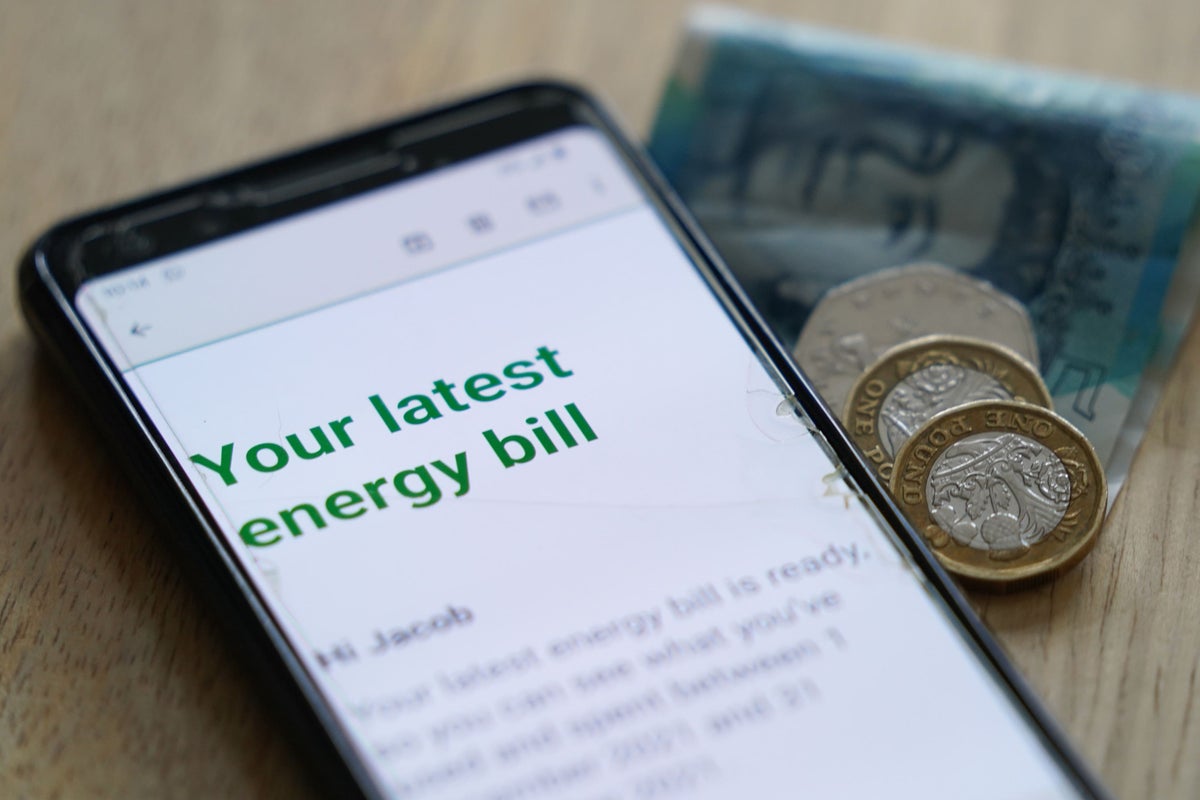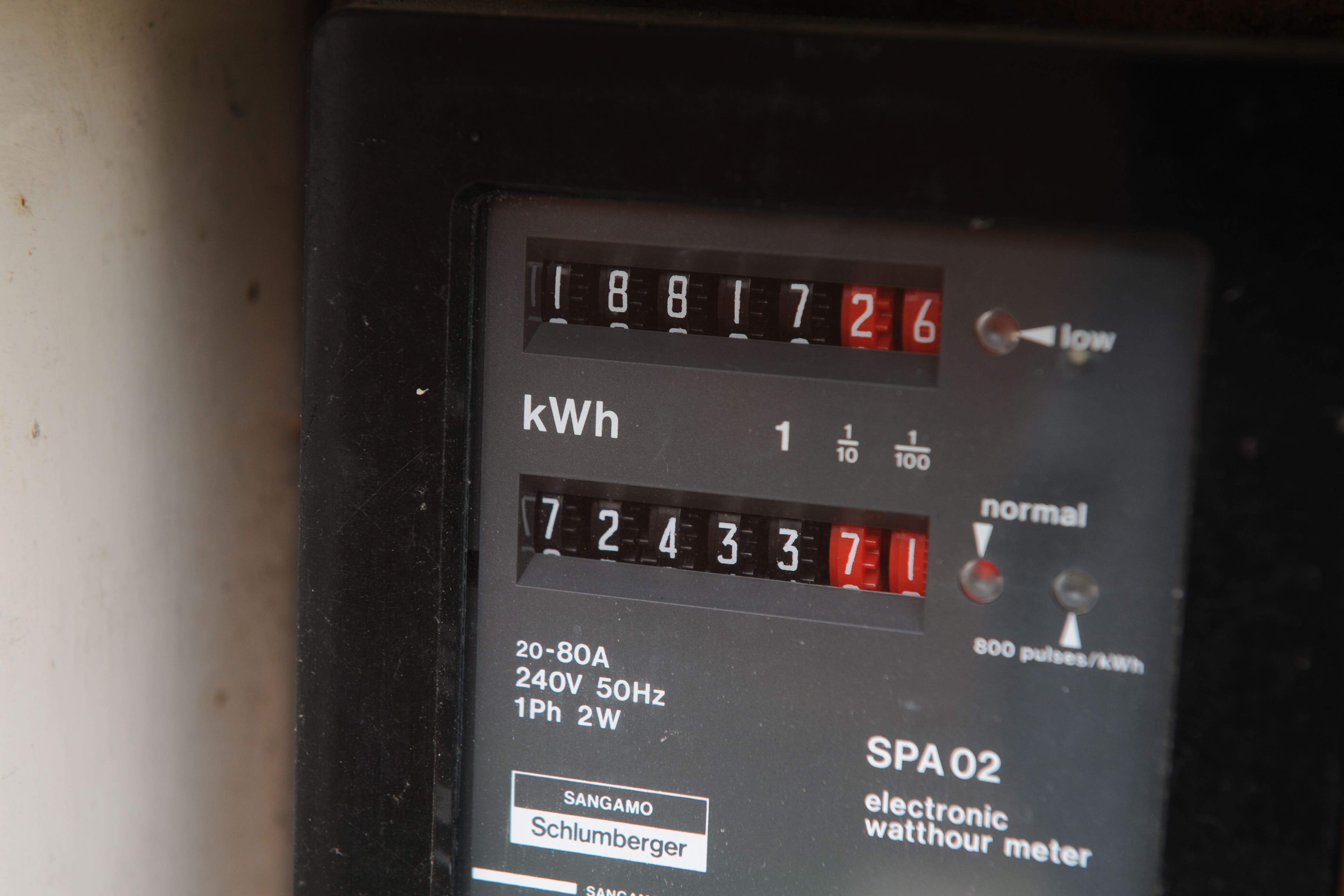
Energy giants would be forced to return millions of pounds held as surplus in customers’ accounts under proposals being considered by ministers, as households brace for another bill hike.
Costs are set to rise by around £500 a year, despite regulator Ofgem lowering its price cap on Monday, as energy bill support from ministers falls.
Ofgem is lowering its cap – the amount suppliers are able to charge – from £4,279 per year to £3,280, effective from 1 April. But the amount the average household will have to pay under the government’s “energy price guarantee” is set to increase from £2,500 to £3,000 from April.
Despite the cost of living crisis, suppliers have been accused of hoarding billions of pounds of consumers’ cash as surpluses in their accounts, prompting a former Ofgem board member to accuse energy firms of having a “metaphorical hand” in customers’ pockets.
Now, energy minister Amanda Solloway has said MPs will look at enforcing automatic repayments on sums held in accounts – a move that could see millions of pounds returned to customers.
“Suppliers should not be sitting on money that is not needed to pay for the energy that a customer is using,” she told MPs.
“Accounts should not build up an excessive credit balance … it is the customers’ money.”
Ministers intend to press the chief executive of Ofgem to ensure customers get their money back swiftly and easily and prevent suppliers from building up large consumer credit balances in the first place.
As the cost of electricity and gas has shot up, monthly direct debit payments have also soared. At the same time, many customers have built up a surplus which they complain has been a struggle to get back.
Energy Secretary Grant Shapps revealed last month that he had personally been affected, saying: “I’ve had the experience myself where the energy company just arbitrarily decides to put an outrageous figure into the direct debit.”
In 2021, Ofgem said that automatic repayments could see as much as £1.4bn returned to customers. The money would average around £65 if split between 21 million households.
But as energy prices have soared, reports earlier this year suggest the amount being held in energy accounts has swollen to between £2 and £9bn.
Energy firms have said that extra cash paid in the summer months helps customers afford higher bills during the colder, darker winter.

But last year an independent report commissioned by Ofgem, from the energy analysts Oxera, found that “rather than fluctuating around 0”, accounts were in credit to the tune of 40 per cent of their annual bill on average across the year.
In December, Christine Farnish, a former board member of Ofgem, warned that energy firms were “allowed to put their metaphorical hand into a customer’s pocket and use advance customer payments to fund their own businesses”.
“It’s my guess that hard-pressed families have no idea that part of their energy direct debits are used to provide cheap financing for their supplier, rather than actually paying for energy consumed,” she told The Daily Telegraph.
Ms Solloway gave MPs an “assurance” that she would look at automatic repayments during a debate on energy bills in parliament’s Westminster Hall on Wednesday.
In response, Alan Brown, the chair of the All-Party Parliamentary Group on Energy Costs and an SNP MP, replied: “Everybody here welcomes what the minister says about looking at automatic refunds.”
Ed Miliband MP, Labour’s Shadow climate secretary, said it was “shameful” companies were keeping such large credit balances on customers’ accounts and he called on Ofgem and the government to act.
“For 13 years, the Conservatives have kept energy bills too high and made our energy system too weak with their failure to embrace the clean energy sprint we need and to get off expensive, insecure fossil fuels for good.”
Liberal Democrat energy spokesperson Wera Hobhouse also welcomed the move, saying: “The hard-earned money of British people should not be mishandled and taken advantage of by greedy energy companies.”
SNP MP Drew Hendry, who organised Wednesday’s debate, said: “I’m glad the UK government will now look to take action – households are facing huge pressures just now as a result of the Tory cost of living crisis so the UK government must act as quickly as possible to help people to access their own money.”
An Ofgem spokesman told The Independent that protecting consumers was its “top priority”.
It has proposed a series of measures to tackle the issue, including, for example, requiring suppliers to hold enough capital so they do not need to rely on customer credit balances.
Earlier this month, it condemned firms for the forced installation of pre-payment metres, which saw contractors for British Gas break into vulnerable people’s homes to fit them.
The regulator, which is carrying out a review into the issue, has ordered any companies that installed the metres without permission to remove them and pay compensation to affected customers.
A department for energy security and net zero spokesperson said: “Protecting consumers is a top priority for the government.”
A spokesman for Octopus Energy, which has millions of customers in the UK, said it constantly reviewed direct debits to make sure customers were paying an appropriate amount for the energy they use and payments are manageable.







